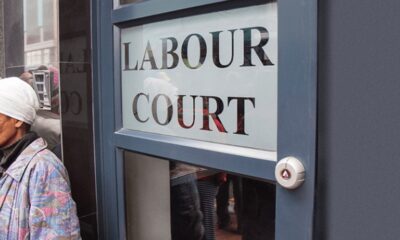News
Posting Your Way Out of a Paycheck? Why Your Social Media Could Cost You Your Job

That ‘innocent’ Facebook rant on your holiday? It could end your career. In South Africa, the workplace doesn’t stop at the office anymore; it follows you online.
Whether you’re venting in a WhatsApp status, dropping spicy takes on X, or posting memes on Facebook during your downtime, you may want to think twice. In a growing number of cases, South African employees are being fired for things they post on their personal social media accounts, even when they’re off the clock.
And no, it’s not a scare tactic. It’s happening, and the courts are backing employers.
When “just a post” becomes a legal problem
A recent Labour Court ruling made it painfully clear. An employee on leave posted racially offensive content on Facebook. His profile listed his place of work, and that was enough for the judge to rule that his dismissal was fair.
The court didn’t care that it was “personal time” or a “personal account.” What mattered was the impact on the company’s reputation. If the public can link you to your employer, your digital behaviour can reflect back on them, and if it’s damaging, they can act.
Legal experts say the message is loud and clear: online activity is no longer private if it has public consequences.
What the experts are saying
According to Emma Sadleir, a top South African digital law specialist, the law is “catching up with workers” who still believe personal profiles mean no professional consequences. That mindset, she says, is outdated.
“There is no such thing as a strict separation between personal and professional identity online,” she warns.
The CCMA (Commission for Conciliation, Mediation, and Arbitration) has echoed this stance in multiple decisions, siding with employers who dismissed workers for social media posts that “brought the company into disrepute.”
The bottom line? You can absolutely lose your job over what you post, even if you’re not doing it at work.
Social media: still personal?
In today’s remote-working world, the lines between work and personal life are already thin. Add in platforms like LinkedIn (where many people proudly list their company), and it’s easier than ever for employers to be linked to staff outside working hours.
And while many believe their accounts are private, a screenshot in the wrong group chat is all it takes for a post to go viral or land on your boss’s desk.
Public reaction: ‘Big Brother vibes’ or fair warning?
On platforms like Reddit and X, reactions have been mixed. Some users call it “cancel culture in the workplace,” while others say it’s long overdue.
One user commented,
“If you post hate speech with your employer on your profile, that’s on you.”
Another added,
“Feels like Big Brother is watching… but I also get it. Companies need to protect their image.”
Regardless of opinion, the law is clear: your right to free speech doesn’t protect you from workplace consequences.
Think before you type
South African employees are being urged to be cautious, not paranoid. No one is saying you can’t post holiday pics or funny videos. But when it comes to political rants, offensive jokes, or anything that could be interpreted as inflammatory, it’s worth asking: Would I say this on camera with my employer watching?
If not, maybe don’t post it.
Also read: Takealot’s New Click-and-Collect Spots Are Changing How South Africans Shop
Follow Joburg ETC on Facebook, Twitter , TikTok and Instagram
For more News in Johannesburg, visit joburgetc.com
Source: The South African
Featured Image: Business Today



























